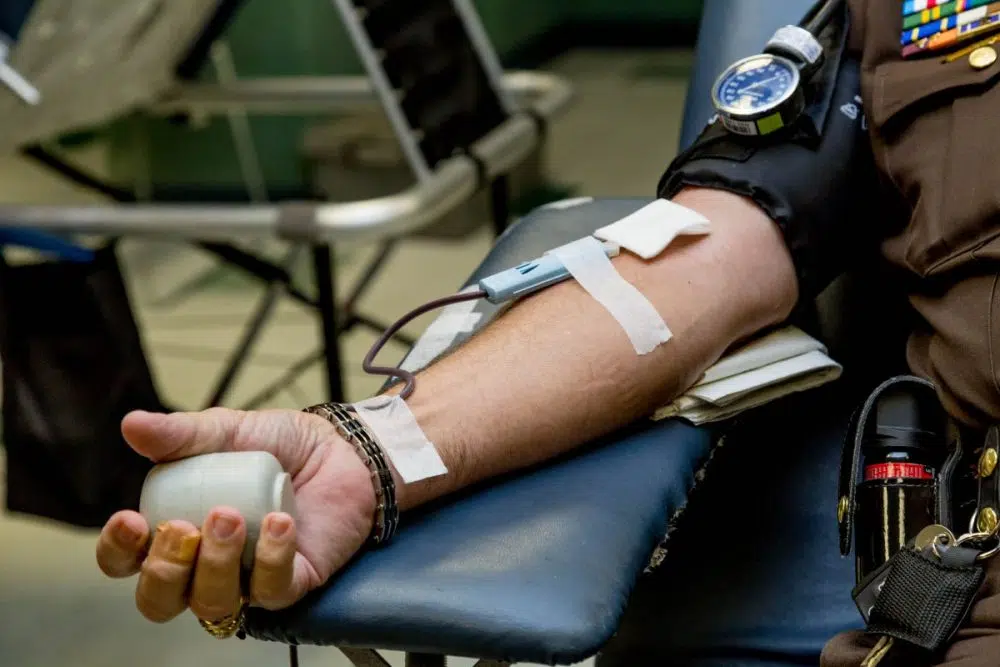
Platelet Donation Explained: A Super-Efficient and Gratifying Way to Help Cancer Patients
You probably know a lot about donating blood, but did you know that it’s possible to just donate portions of your blood? Each component of our blood is used in different ways, helping different patients. Platelets, for example, are used to help cancer patients. Learn more about the importance of platelet donation and the high-tech machine that makes it possible.
First of all, what are platelets
Platelets, or thrombocytes, are small, colorless cell fragments in our blood. Their main function is to stick to the lining of blood vessels and stop bleeding.
Why are platelets so important?
Many lifesaving medical treatments require platelet transfusions:
- More than 50% of donated platelets are used in cancer treatment. Without a platelet transfusion, cancer patients can face life-threatening bleeding.
- Platelets also help patients survive major surgeries or serious injuries.
- Platelet transfusions help patients with blood disorders and those with organ transplants live more active, healthy lives.
Every 15 seconds someone in the U.S. needs platelets. Since platelets can’t be manufactured, they must come from a human donor. And since platelets must be used within five days, new donors are needed every day.
How are platelets collected?
There are two ways to collect platelets. You can donate whole blood, which will be taken to a lab, separated into multiple components (red cells, plasma, and platelets), and given to different patients.
The more efficient way to collect platelets is through a process called apheresis. In a platelet-only donation, an apheresis machine separates platelets from your other blood components. The platelets are kept, and the rest of your blood is returned to your body. Using this process, one donor can contribute to what would normally be obtained from up to multiple whole blood donations – an amount that can help as many as three people.
How does an apheresis machine work?
An apheresis machine, also known as a blood cell separator, can be used to collect any component of blood, such as platelets, plasma or red cells.
When collecting platelets, a relatively small amount of blood is drawn from your arm into the machine. This blood is spun, forcing the platelets to separate from the other blood components. The platelets then go into a sterile, single-use plastic bag. Meanwhile, the rest of your blood – the plasma, red cells and white cells – is returned to you through your other arm. The cycle is repeated several times.
Is apheresis donation safe? Does it hurt?
Donating platelets by apheresis is a safe process, performed in a highly controlled environment by professionally trained staff. Each donation is collected through a new, sterile needle that is used once and then discarded. Compared with donating whole blood, platelet donations use a smaller needle so some donors find it more comfortable.
Because you’re getting your fluids and red cells back, some donors say they feel less sluggish after donating platelets. Although most people feel fine afterward, a small number of people may feel lightheaded or dizzy, have an upset stomach or experience a bruise or pain where the needle was inserted.
Should I donate platelets?
Most people are good candidates for donating platelets. The exceptions are people with certain rare blood types that can be more useful in other situations:
- Type O negative and type B negative can make the most impact by donating whole blood or red cells.
- If you have type AB blood, and your local Red Cross doesn’t have plasma collections, platelet donation is your next best option. You can give a platelet and plasma donation at the same time.
Platelets are in constant demand by hospitals but have a very short shelf life – only five days. Consequently, donors and donations are always needed.
I’d like to help – where can I donate platelets?
Platelets can be donated by appointment at select American Red Cross Donation Centers. Please call 1-800-RED CROSS or visit RedCrossBlood.org/GivePlatelets to schedule your donation appointment.